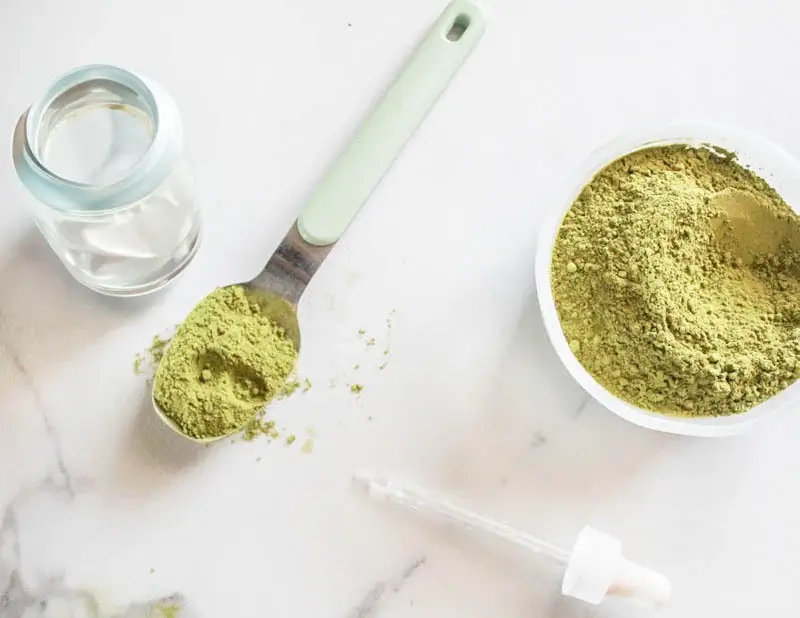What makes people happy?
It’s the question behind bestselling books, billion-dollar industries, and—believe it or not—the most popular course ever offered at Harvard University. Taught by psychologist Dr. Tal Ben-Shahar, the class on positive psychology filled lecture halls with thousands of students desperate to understand how to live a happier, more meaningful life.
And they’re not alone.
From ancient philosophy to modern science, the search for happiness has always been at the heart of the human story. As Benjamin Franklin once said, “The Constitution only guarantees the American people the right to pursue happiness. You have to catch it yourself.”
Today, that pursuit is more important than ever. In a world that’s more connected—and more stressed, anxious, and distracted—than any generation before, people are waking up to the reality that lasting happiness isn’t found in money, fame, or success.
It’s found in something deeper.
Let’s explore what happiness researchers, global studies, and Biblical wisdom all agree on: the keys to a truly joyful life are both timeless and practical—and they’re more accessible than you might think.
Table of Contents
Happiest Countries in the World
Happiness research has suggested that:
- 50% of our happiness levels are determined by a genetic set point/range,
- 40% by our intentioned actions,
- And only 10% by life’s circumstances (e.g. income, social status, place of residence, age).
Taking into account the science of epigenetics and our ability to turn on and off certain genes, it appears that the 50% subject to genetics can be “altered” or modified by our thoughts and actions. Thus, it remains to be seen that up to 90% of our ability to be happy is completely up to us!
The world authority on happiness and well-being research, Dr. Ed Diener (2), of the University of Illinois (3) has studied 155 countries (99% of the world) and has come up with some very telling conclusions. First off, Denmark is ranked the happiest place on earth. Some of the reasons Denmark is ranked so high is that the Danes trust each other. When asked on the Gallup World Poll, “If I lost my wallet would a stranger return it?” A vast majority of the Danes said, “yes!”
Latin American countries like Costa Rico are considered relatively happy. Supporting culture, large extended families, and numerous celebrations makes life enjoyable for them. Also noteworthy are the Masai, a small herding culture in Africa. They are a proud people who have high self-esteem as they are self-sustaining, able to live off the land, and they are know for enjoying their social relationships.
As you’d expect, the poorest countries in the world hold the lowest rankings in the Gallup Poll. The four saddest countries in the world (Togo being the lowest) have incomes that are up to 40 times lower than the four happiest countries, the report said.
After dropping out of the top 20 for the first time last year, the US ranks No. 24 in the latest World Happiness Report.
These are the 20 happiest countries according to their latest report:
1. Finland
2. Denmark
3. Iceland
4. Sweden
5. Netherlands
6. Costa Rica
7. Norway
8. Israel
9. Luxembourg
10. Mexico
11. Australia
12. New Zealand
13. Switzerland
14. Belgium
15. Ireland
16. Lithuania
17. Austria
18. Canada
19. Slovenia
20. Czech Republic
At the bottom of the list
Afghanistan (No. 147) is once again last on the list. Sierra Leone (No. 146), Lebanon (No. 145), Malawi (No. 144) and Zimbabwe (No. 143) make up the rest of the bottom five for happiness.
What Makes People Happy? Top Factors
People can expect to live 28 years longer in the happiest nations. These are generally places where people have their own internal standards and are satisfied with their work; using their skills, mastering a career, and loving what they do. Generally, these are not places where there is social competition or excessive materialism, regardless of affluence.
Economic growth; however, doesn’t necessarily drive up happiness. When money buys someone out of the burdens of homelessness, then money can in effect, “buy happiness.” But once basic needs are met money has little to do with happiness.
Strong, healthy social relationships are the one common denominator of all the happiest places on earth. It’s proof that positive affirmations have healing benefits!
Other contributing factors discovered by happiness research include:
- Life satisfaction
- Doing activities you love
- Loving other people
- Using skills
- Continually learning
- Curbing anger and negativity
- Having life goals that are bigger than yourself
- Living around more green space
- Short work commutes
An interesting finding from Diener’s is that raising children does not contribute to happiness or sadness. Happiness research shows that if someone desires to have children, then child-rearing will bring great happiness. Whereas, if someone does not like children and the responsibilities associated with raising them, then child rearing will contribute to sadness.
Ultimately we know that God calls us to experience the true joy of living an abundant life and we strive to honor that as we make wise choices that impact our happiness here on earth.
10 Keys to Live a Happier Life
The science is clear: real, lasting happiness is mostly under our control. In fact, as much as 90% of our happiness can be shaped by the choices we make daily—how we think, how we relate to others, and how we live.
Here are 10 of the most powerful, research-backed ways to increase happiness, supported by both science and Scripture.
1. Build Strong Relationships
The Harvard Study of Adult Development—spanning over 85 years—found that the number one predictor of long-term happiness and health is not money, career success, or diet… it’s the quality of our close relationships. People who feel supported and connected live longer, experience less chronic illness, and report greater life satisfaction.
“Two are better than one… For if they fall, one will lift up his companion.” (Ecclesiastes 4:9–10)
2. Serve Others Generously
Helping others doesn’t just benefit the receiver—it improves the giver’s physical and mental well-being too. Acts of kindness have been shown to reduce stress, increase happiness hormones like oxytocin, and even improve chronic pain. In short: generosity is healing.
“It is more blessed to give than to receive.” (Acts 20:35)
3. Practice Gratitude Daily
Dr. Robert Emmons, one of the world’s leading gratitude researchers, found that people who wrote down just three things they were thankful for each day reported higher levels of happiness, better sleep, stronger immune function, and reduced depression.
“In everything give thanks; for this is the will of God in Christ Jesus for you.” (1 Thessalonians 5:18)
4. Live with Purpose
Living with meaning is a deep psychological need. According to researchers, a strong sense of purpose is associated with lower cortisol levels, better sleep, improved immune function, and greater life satisfaction. Whether that purpose is parenting, ministry, caregiving, or creative work, people who know why they wake up in the morning are simply happier.
“You will show me the path of life; in Your presence is fullness of joy.” (Psalm 16:11)
5. Move Your Body
Exercise is a powerful, natural antidepressant. One major review published in Primary Care Companion to the Journal of Clinical Psychiatry found that physical activity can be as effective as medication for treating mild to moderate depression. Even a brisk 20-minute walk releases endorphins, improves brain function, and boosts your mood
“Glorify God in your body…” (1 Corinthians 6:20)
6. Spend Time in Nature
A 2019 study found that people who spent at least 120 minutes a week in green space were significantly more likely to report high levels of well-being and lower levels of anxiety. Nature heals—literally. Time in the garden, a walk in the woods, or just sitting under a tree can be a profound mood booster.
“The heavens declare the glory of God; and the firmament shows His handiwork.” (Psalm 19:1)
7. Keep Learning and Growing
Growth is a basic human need. A 2017 study found that lifelong learning and curiosity are strongly associated with happiness and emotional vitality, especially in older adults Whether you’re learning to garden, picking up a musical instrument, or diving deeper into Scripture, staying mentally and spiritually active keeps you energized and fulfilled.
“Wise people store up knowledge…” (Proverbs 10:14)
8. Regulate Your Emotions
Contrary to popular belief, happy people aren’t cheerful all the time—they’re just better at managing their emotions. Forgiveness, gratitude, and compassion are proven tools for reducing anger, anxiety, and emotional reactivity
“He who is slow to anger is better than the mighty…” (Proverbs 16:32)
9. Limit Materialism
Money can buy comfort—but only up to a point. A 2018 study published in Nature Human Behaviour found that beyond basic needs, more money doesn’t bring more happiness, and materialistic values are actually linked to anxiety and dissatisfaction.
“Beware of covetousness, for one’s life does not consist in the abundance of the things he possesses.” (Luke 12:15)
10. Honor the Sabbath and Rest
Rest isn’t optional—it’s Biblical. Burnout and chronic stress are modern epidemics, and they’re stealing our joy. Sleep and intentional rest restore cognitive function, reduce inflammation, and rebalance mood hormones like serotonin and dopamine (Walker, 2017. Why We Sleep).
Unplugging once a week and entering into God’s rhythm of Sabbath is one of the healthiest choices you can make for your mind, body, and soul.
“Come to Me, all you who labor and are heavy laden, and I will give you rest.” (Matthew 11:28)
Yes, Happiness is a Choice
Happiness isn’t a destination reserved for a lucky few—it’s a daily decision rooted in how we live, how we love, and how we align our lives with truth. As the research shows, while genetics and circumstances play a role, up to 90% of our happiness is shaped by our own thoughts, actions, and habits. Whether you live in Finland or Florida, the same timeless principles apply: strong relationships, meaningful purpose, daily gratitude, generous service, and rhythms of rest.
And as believers, we know that true joy isn’t found in the things of this world—but in walking closely with the One who designed us to thrive. When we align our lives with God’s design for health, wholeness, and community, happiness becomes more than a feeling—it becomes the fruit of a life well-lived.
References:
- https://edition.cnn.com/travel/worlds-happiest-countries-2025-wellness
- https://www.pursuit-of-happiness.org/history-of-happiness/ed-diener/
- Shadyac T (Producer), & Belic R (Director). (2001). Happy [Motion picture]. United States: Documentary.
- http://www.youtube.com/watch?v=7qSdZPAybf0
- http://www.youtube.com/watch?v=WaHO1OHNc2s
- Emmons, R. A., & McCullough, M. E. (2003). Counting blessings versus burdens: An experimental investigation of gratitude and subjective well-being in daily life. Journal of Personality and Social Psychology.
- Ryff, C. D., et al. (2006). Psychological well-being and ill-being: Do they have distinct or mirrored biological correlates? Psychotherapy and Psychosomatics.
- Carek, P. J., Laibstain, S. E., & Carek, S. M. (2011). Exercise for the treatment of depression and anxiety. Primary Care Companion CNS Disorders.
- White, M. P., et al. (2019). Spending at least 120 minutes a week in nature is associated with good health and wellbeing. Scientific Reports.
- Sutin, A. R., et al. (2017). Personality traits and chronic disease: Implications for adult personality development. Journal of Personality.
- Worthington, E. L., et al. (2020). Forgiveness interventions and psychological well-being: A meta-analysis. Journal of Consulting and Clinical Psychology,
- Jebb, A. T., et al. (2018). Happiness, income satiation and turning points around










